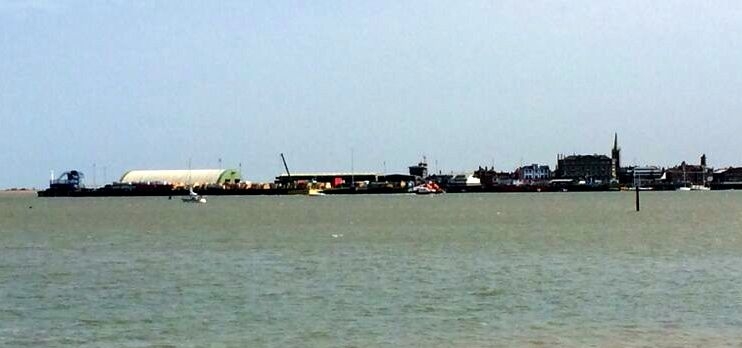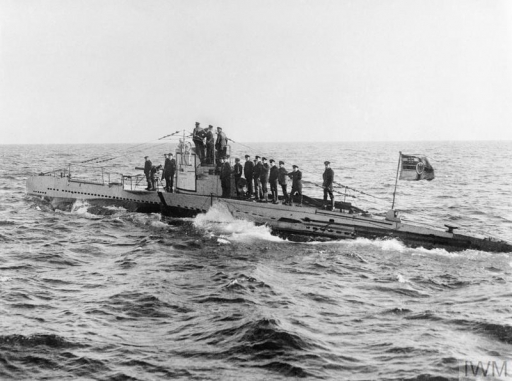Germany took the fateful step of resuming unrestricted submarine attacks on merchant ships from 1 February 1917.
The aim was to starve the Allies, and Britain in particular, of supplies, forcing them to sue for peace within months.
The initial impact of the campaign was devastating but it also provoked the United States into entering the First World War.
German commanders thought it a risk worth taking to try to achieve a quick victory.
The Western Front was still deadlocked, and the German war economy was in the stranglehold of the British naval blockade.
The Germans realise the weakness of our position and its strength, Britain’s Daily Telegraph newspaper noted in January 1917, warning of the forthcoming threat.
“If the strength of the merchant navy tails below a certain easily ascertained level, then the Army cannot exist, our sea command must be abandoned and the nation cannot live.”
 German U-boats were surrendered to Britain in the Essex port of Harwich after the First World War (Photo: Centenary News)
German U-boats were surrendered to Britain in the Essex port of Harwich after the First World War (Photo: Centenary News)
Germany first resorted to unrestricted U-boat warfare in 1915 in response to Britain’s declaration of the North Sea as a war zone.
But the submarines were reined in following American protests over losses of US lives in the sinkings of the transatlantic liners Lusitania and Arabic.
German commanders started calling for the campaign to be resumed after the surface fleet failed to seize control of the seas at the Battle of Jutland.
By December 1916, Admiral Henning von Holtzendorff, chief of the German naval staff, was arguing that sinking 600,000 tons of shipping a month would soon bring Britain to the verge of collapse.
His recommendation to resume submarine attacks without warning won crucial support from the supreme military leaders, Hindenburg and Ludendorff.
Hundreds of merchant ships were sunk in the opening months of the campaign, at one point reducing Britain to just six weeks’ supply of wheat.
Objectives for the Allied land offensive in Flanders in late summer 1917, culminating in the Battle of Passchendaele, included the capture of the German U-boat bases on the Belgian coast.
Although this failed, the introduction of escorted convoys eventually stemmed the disastrous losses at sea. And the US declaration of war in April had raised the prospect of hugely increased resources for the Allies.
Sources: Wikipedia/Daily Telegraph Archive/various
Images courtesy of Imperial War Museums (© IWM Q 20220) – U-boat; Centenary News – Harwich
Posted by: CN Editorial Team
